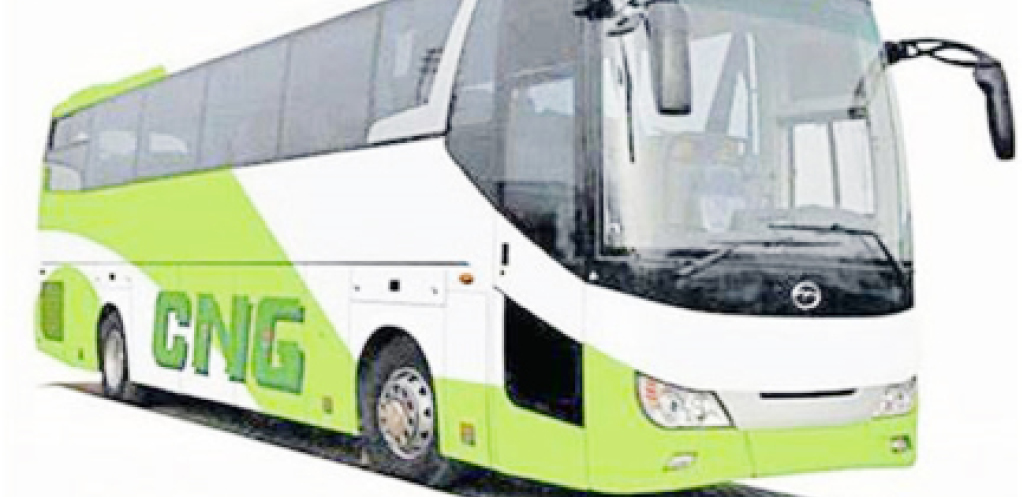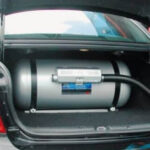The federal government recently launched the Compressed Natural Gas (CNG) scheme, which is targeted at enhancing clean energy in Nigeria’s transport system.
The CNG conversion centres, which are currently seven across the country, are seen as part of efforts to cushion the effects of fuel subsidy removal and encourage Nigerians to embrace more environmentally friendly vehicles.
What CNG conversion means
With the increasing awareness of climate change and the need to reduce carbon emmission, Nigerians are currently looking for alternative sources of fueling their vehicles, especially at a time when petrol is also expensive.
The Compressed Natural Gas is said to be cheaper than ordinary gasoline or diesel. In addition, the CNG engine is considered to be more environmentally friendly. There are considerably less pollutants associated with compressed natural gas being ignited; and studies show that it gives off 40 per cent less greenhouse gas.
Consequently, a CNG conversion system allows vehicles running on petrol, gasoline and diesel to be converted.
The CNG conversion centre, which has now been established by the federal government, is expected to employ skilled technicians that would install components to the existing vehicle, making it the primary fuel for vehicles with gasoline as backup.
Similarly, storage cylinders are placed underneath vehicles like vans or pick-up trucks, or in the trunk of vehicles like cabs and cars.
How it works
The CNG engine uses a second fuel tank, which has to be attached to the car, and is usually placed in the trunk or other places where there is suitable room
The amount of pressure is said to vary from engine to engine, but it is usually compressed to around 3,600pounds per square inch. The driver can then decide which of the fuels they wish to use by simply pressing a switch on the dashboard. This means that the car can alternate between the different tanks, drawing fuel from either.
Experts say once the driver selects the CNG tank, the compressed gas in the tank is pulled through a series of highly pressurised lines until it reaches the regulator. Inside the regulator, the pressure on the gas is lessened until it matches the amount needed by the fuel injection system of the car’s engine. Once the gas has reached an acceptable pressure, the solenoid valve allows the gas to move into the fuel injection system, and from there, into the engine. Just as with gasoline, once the engine has received the gas, it is ignited in the combustion chamber, and this provides the energy to power the car.
One advantage of CNG is that it is typically cheaper than petrol, leading to significant savings on fuel costs. Also, CNG burns cleaner than petrol, resulting in reduced engine wear and tear, and ultimately extending the lifespan of one’s car engine.
What government is saying
In October, the the federal government, through the Presidential Compressed Natural Gas Initiative (PCNGI) Steering Committee, launched the initiative, while announcing that seven CNG conversation centres have been established across the country.
The chairman of the committee Zacch Adedeji, also stated that government had waived the Value Added Tax (VAT) on CNG purchases, as well as seeking duty waivers for value-chain.
Adedeji, who was represented by the Authority Chief Executive Officer of the Midstream and Downstream Petroleum Regulatory Authority (NMDPRA), Mr Farouk Ahmed, further stressed that plans were underway for the government to establish multiple conversion centres across the country in the next two weeks.
“I am pleased to announce that there are currently seven conversion centres in Nigeria and the government is actively working to establish more of them. These plans will be rolled out starting this afternoon, by the initiative.
“This project is not only about conversion of vehicles but also about generating employment opportunities. It demonstrates President Bola Tinubu’s commitment to both environmental sustainability and economic growth.
“Moreover, it is my pleasure as your chief tax officer, a position I hold alongside chairman of this initiative, to announce that we will be waiving the Value Added Tax on CNG purchases, as well as seeking duty waivers for the value chain,” he said.
Similarly, at the pilot commissioning of a conversion centre for vehicles that will run on compressed natural gas in the Federal Capital Territory, the Minister of Transport, the Minister of Transportation, Saidu Alkali, noted that the centre would boost the CNG initiative of the government and mitigate the effect of subsidy removal on petrol by reducing transportation costs. This Happened (221) Reviews Recent Naira Fall, Tuition Fee Hike, Other | Punch
The minister, who was represented by the acting Director of Road Transport and Mass Transit Administration, Akhidenor Cynthia, said, “The adoption of a more environmentally friendly energy source like the CNG, which the country has in abundance, will reposition the transportation sector in urban cities across the country and put Nigeria in tandem with what the world desires at this time.
“Greenhouse gas emissions pose health hazards and dire environmental consequences, and Nigeria cannot afford to lag, considering that she is a signatory to the Green House Emission policy, aimed at reducing carbon emission in the environment,” he added.

 Join Daily Trust WhatsApp Community For Quick Access To News and Happenings Around You.
Join Daily Trust WhatsApp Community For Quick Access To News and Happenings Around You.